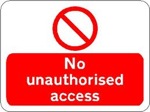
Like many of you, we’re wondering about what cause today’s OverDrive/Penguin news:
OverDrive Suspends Access to New Penguin eBook Titles, “Get For Kindle” Access Also Shutdown
Only time will tell as to why Penguin decided to change their policy with OverDrive (and libraries) but we’re wondering if a letter by OverDrive CEO Steve Potash to customers (via Librarian By Day) that began the HarperCollins saga at the end of February might provide a few clues about what’s going
Potash writes:
…our publishing partners have expressed concerns regarding the card issuance policies and qualification of patrons who have access to OverDrive supplied digital content. Addressing these concerns will require OverDrive and our library partners to cooperate to honor geographic and territorial rights for digital book lending, as well as to review and audit policies regarding an eBook borrower’s relationship to the library (i.e. customer lives, works, attends school in service area, etc.). I can assure you OverDrive is not interested in managing or having any say in your library policies and issues. Select publisher terms and conditions require us to work toward their comfort that the library eBook lending is in compliance with publisher requirements on these topics.
Another area of publisher concern that OverDrive is responding to is the size and makeup of large consortia and shared collections. Publishers seek to ensure that sufficient copies of their content are being licensed to service demand of the library’s service area, while at the same time balance the interests of publisher’s retail partners who are focused on unit sales. Publishers are reviewing benchmarks figures from library sales of print books and CDs for audiobooks and do not want these unit sales and revenue to be dramatically reduced by the license of digital books to libraries.
A lot of what Potash writes about is security of the material. In other words, making sure that the eBooks don’t get into the hands of unauthorized users With the introduction of Kindle access and the overall boom in e-book usage, unauthorized access might have reached a threshold that Penguin isn’t willing to deal with. Will we be hearing from other publishers.
Laura Hazard Owen writes in her paidContent report that the security issues that Penguin writes about can actually be read as piracy concerns.
Stay Tuned!


































it sounds to me like they’re also considering that people with an out-of-district library card (like the Free Library of Philadelphia) are a problem. At least that’s what I get out of the geographical restrictions comment.
That would be “piracy concerns” in the sense of “if we allow people to access these books legitimately, they might do so instead of pirating them.
Always kind of the big content-distribution conglomerates to put the best interests of pirates ahead of those of customers.
” I can assure you OverDrive is not interested in managing or having any say in your library policies and issues.”
Sounds like just the opposite to me.
My sister is legally blind, (she can read large print on her Kindle but cannot drive), and lives in a rural area where she does not have easy library access. I live in another county, but she frequently uses my library card to access my county library’s e-book collection as well as the library in Philadelphia. The libraries welcome her patronage, but it sure looks like Penguin is telling them that they should block her access since she doesn’t live, work or attend school “in service area, etc.”. If that isn’t having a “say in your library policies and issues”, what would you call it?
Hmm… the geographical restriction might indeed be one of the Kindle concerns. There’s no geographical restriction on devices/apps registered to a Kindle account. The restriction is on the library card used to “borrow” the e-book, but once the e-book’s checked out from the library, anyone on the account could read it. I’m not at all sure that this is really different from Adobe DRM if you look closely, but it might appear to be different from the publisher’s perspective.
January, Great library service is available through the National Library Service for the Blind and Physically Handicapped (NLS) for people who can’t read standard print books. The national program offers audio and Braille books. The state and regional libraries offer additional books in those formats, as well as large print books. All services are available over the computer and through the mail, all publicly funded. And all offer the traditional library respect for patron privacy.
The NLS home page offers links to the regional libraries so that all can find the appropriate point for service.
http://www.loc.gov/nls/